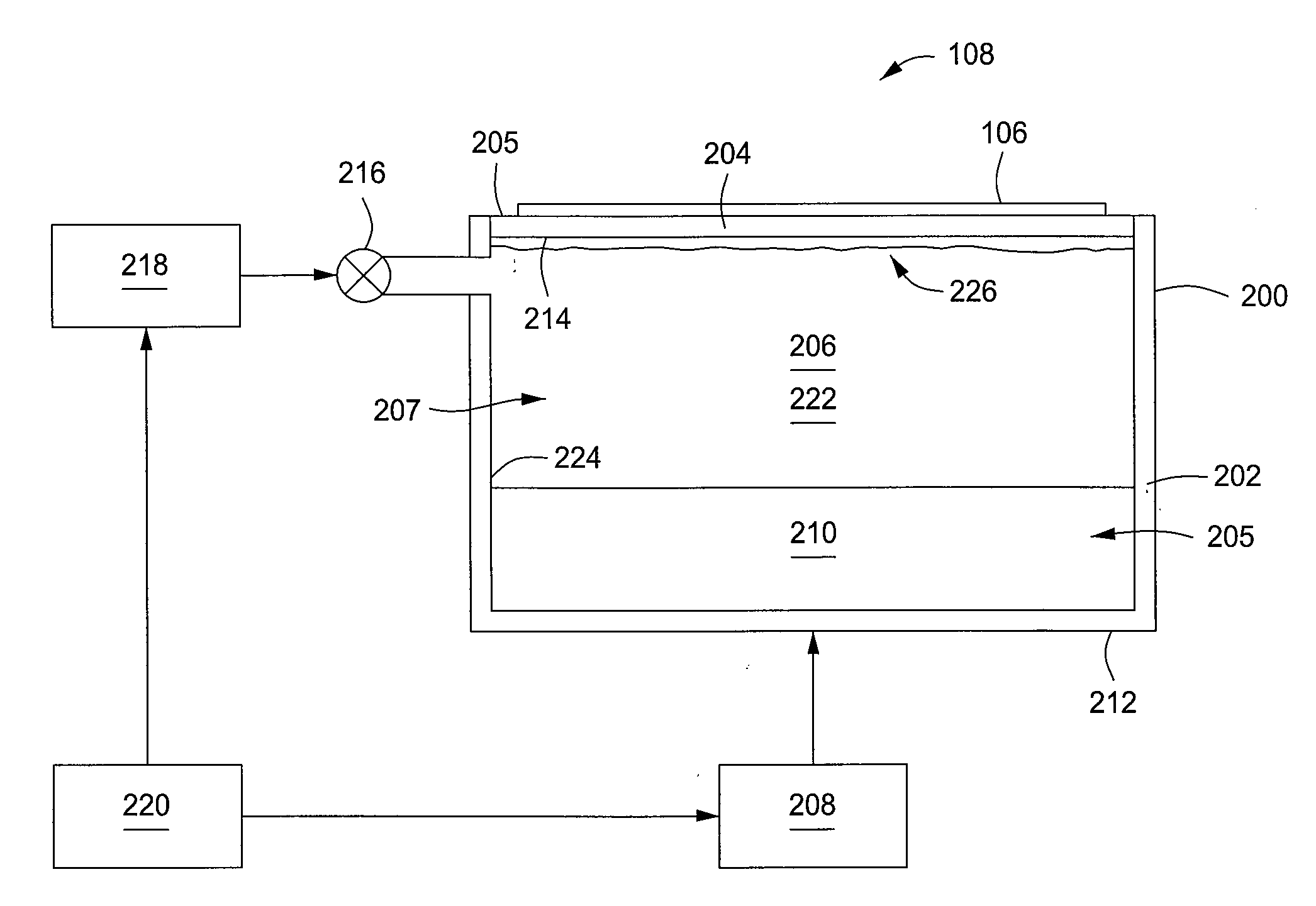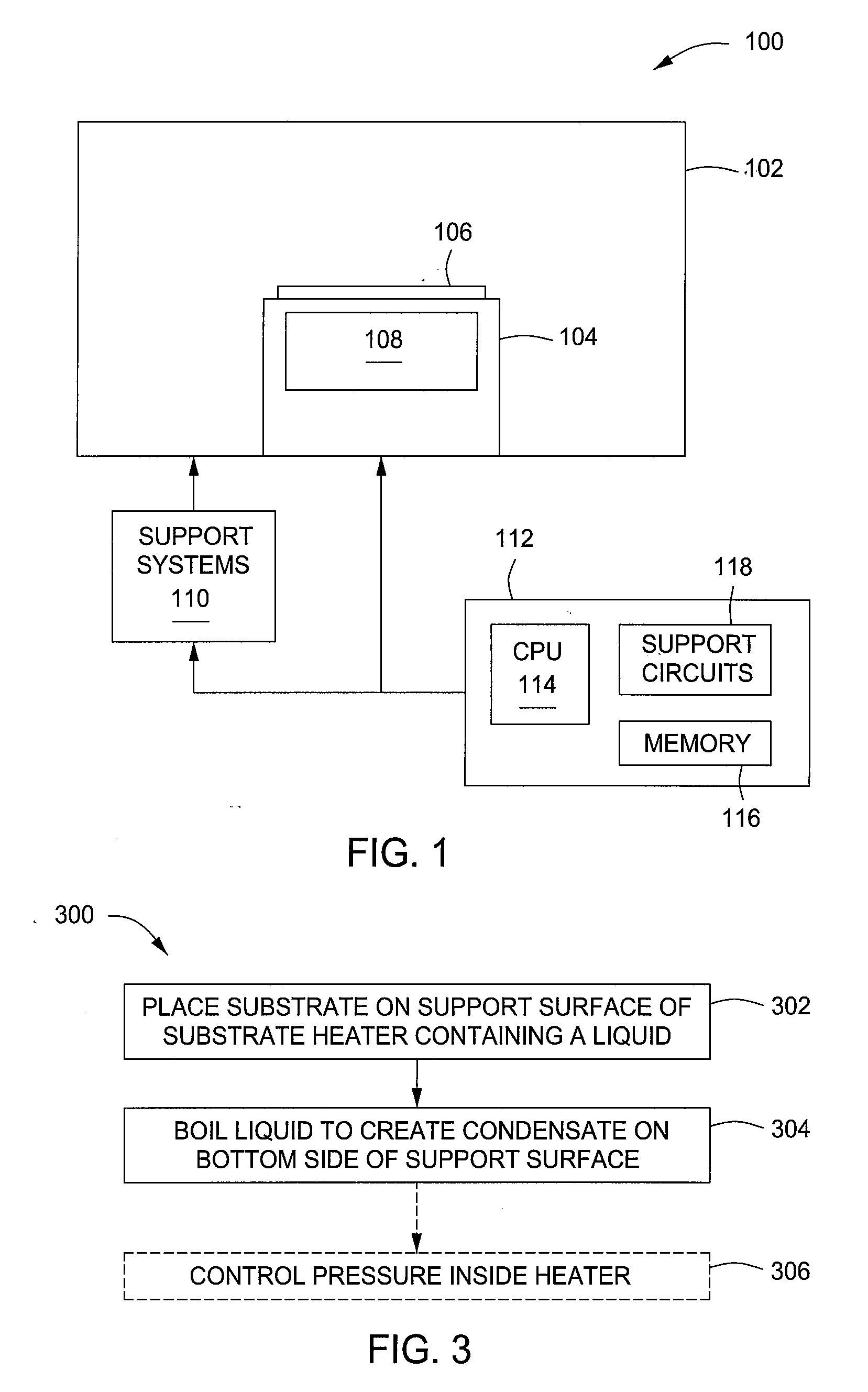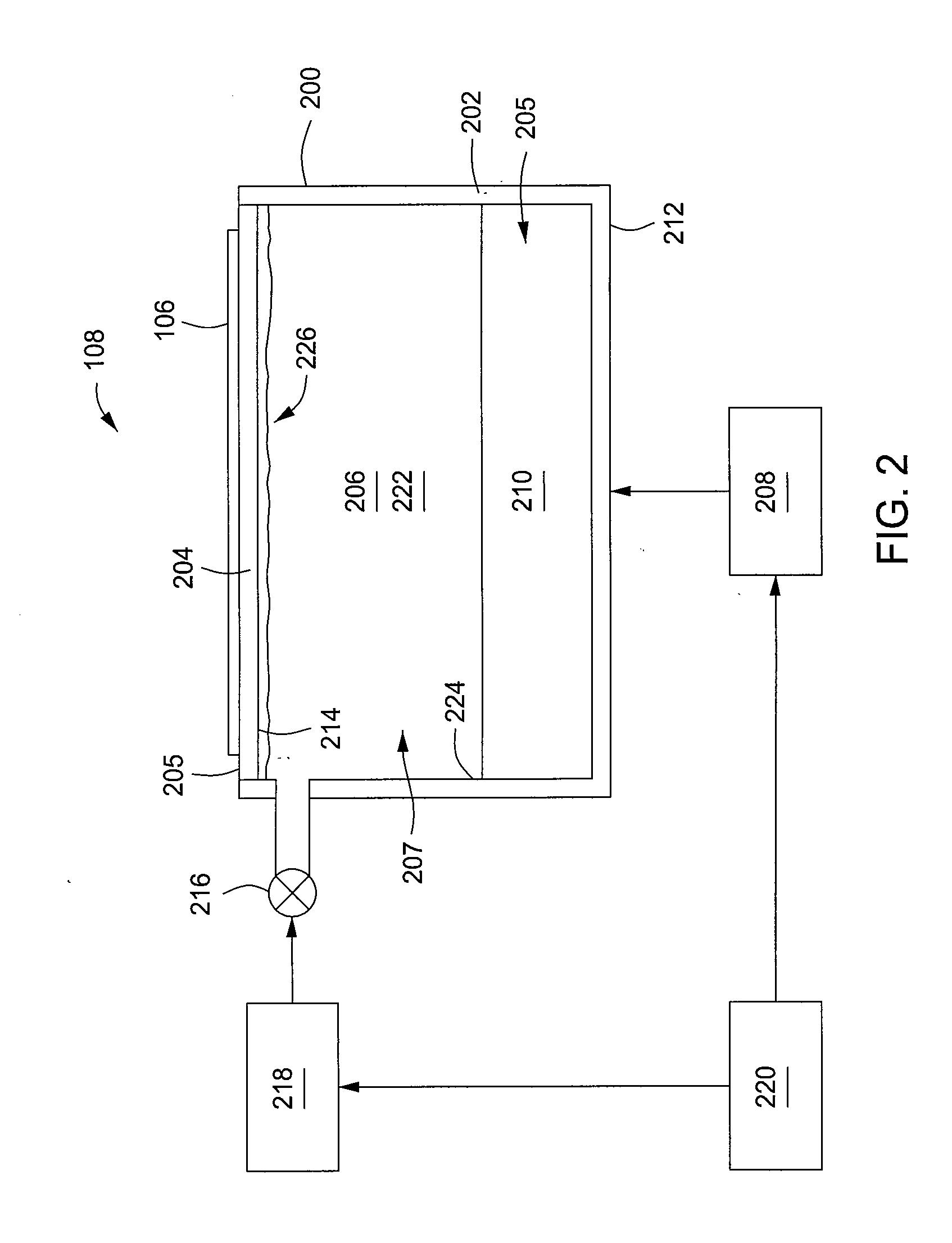Method and apparatus for heating a substrate
a technology of heating apparatus and substrate, which is applied in the direction of heating arrangements of hot plates, lighting and heating apparatus, furniture, etc., can solve the problems of not being able to achieve rapid dynamic control of fluid temperature to compensate for rapid substrate temperature fluctuations, and the response time required to bring the substrate to a desired temperature is relatively long
- Summary
- Abstract
- Description
- Claims
- Application Information
AI Technical Summary
Benefits of technology
Problems solved by technology
Method used
Image
Examples
Embodiment Construction
[0019]The present invention provides a method and apparatus for heating a substrate utilizing a simultaneous presence of liquid and gas on the underside of a heat transfer solid to establish a controlled temperature buffer zone. The heating apparatus employs a vessel containing a liquid which, when boiling, creates a substantially uniform film of condensation on the bottom of a substrate support surface. The film of condensation is heated by the condensation of the vapor phase, thereby heating the substrate support surface, and a substrate disposed thereon. Evaporation of portions of the film of condensation removes heat from the film of condensation, thereby facilitating the maintenance of a substantially uniform temperature of the condensate, and ultimately, the substrate. The exchange of heat which occurs during the phase change of the fluid on the support underside occurs at a constant temperature, that of the vapor-liquid equilibrium temperature for the fluid. In embodiments wh...
PUM
 Login to View More
Login to View More Abstract
Description
Claims
Application Information
 Login to View More
Login to View More - R&D
- Intellectual Property
- Life Sciences
- Materials
- Tech Scout
- Unparalleled Data Quality
- Higher Quality Content
- 60% Fewer Hallucinations
Browse by: Latest US Patents, China's latest patents, Technical Efficacy Thesaurus, Application Domain, Technology Topic, Popular Technical Reports.
© 2025 PatSnap. All rights reserved.Legal|Privacy policy|Modern Slavery Act Transparency Statement|Sitemap|About US| Contact US: help@patsnap.com



